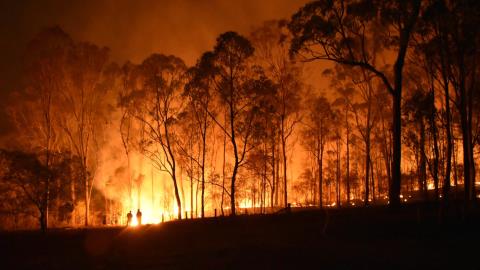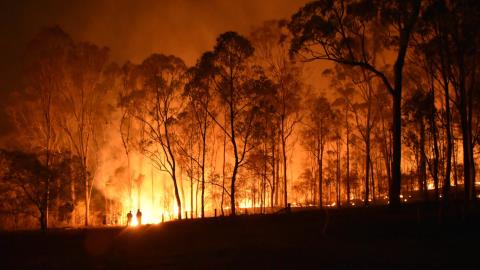The warning comes because the central financial institution publishes its Local weather Biennial Exploratory Situation which explored the monetary dangers posed by local weather change for the biggest UK banks and insurers.
BofE deputy governor Sam Woods, says: “The primary key lesson from this train is that over time local weather dangers will turn out to be a persistent drag on banks’ and insurers’ profitability – notably in the event that they don’t handle them successfully. Whereas they range throughout corporations and situations, general loss charges are equal to a median drag on annual income of round 10-15%.”
He goes on to say that the prices of a transition to web zero look absorbable for banks and insurers, and not using a worrying direct affect on their solvency. They are going to aslo be considerably decrease if early, orderly motion is taken.
“If we’re ever to succeed in web zero, numerous sectors are going to should adapt their enterprise fashions on a basic stage,” says Woods. “Because the report units out, will probably be within the collective pursuits of monetary establishments to help counterparties which have credible plans to adapt – and in the end cut back their exposures to these sectors of the economic system which can be inconsistent with a web zero coverage.”
Considerably counterintuitively, he counsel banks and insurers must proceed to offer finance to extra carbon-intensive sectors of the economic system, with a view to enable them to spend money on the transition.
“Reducing off finance to those corporates too shortly may show counterproductive, and have wide-ranging macroeconomic and societal penalties, together with by means of elevated vitality costs – probably akin to these whose detrimental results we’re experiencing at the moment,” he says.
Woods states the financial institution intends to provide firm-specific suggestions to contributors from the train, however key themes embody:
- The necessity for extra knowledge on, and understanding of, prospects’ present emissions and transition plans. This will embody trying by means of advanced chains of monetary relationships between purchasers and counterparties to see the underlying emissions.
- The necessity to spend money on modelling capabilities and doing extra to scrutinise knowledge and projections equipped by third-parties.
- The necessity for some corporations to contemplate extra deeply how they might reply strategically to totally different situations, together with considering by means of the implications of various paths for local weather coverage.
,The Financial institution of England is warning banks to take fast motion on local weather dangers or face a 15% hit to annual income.,








